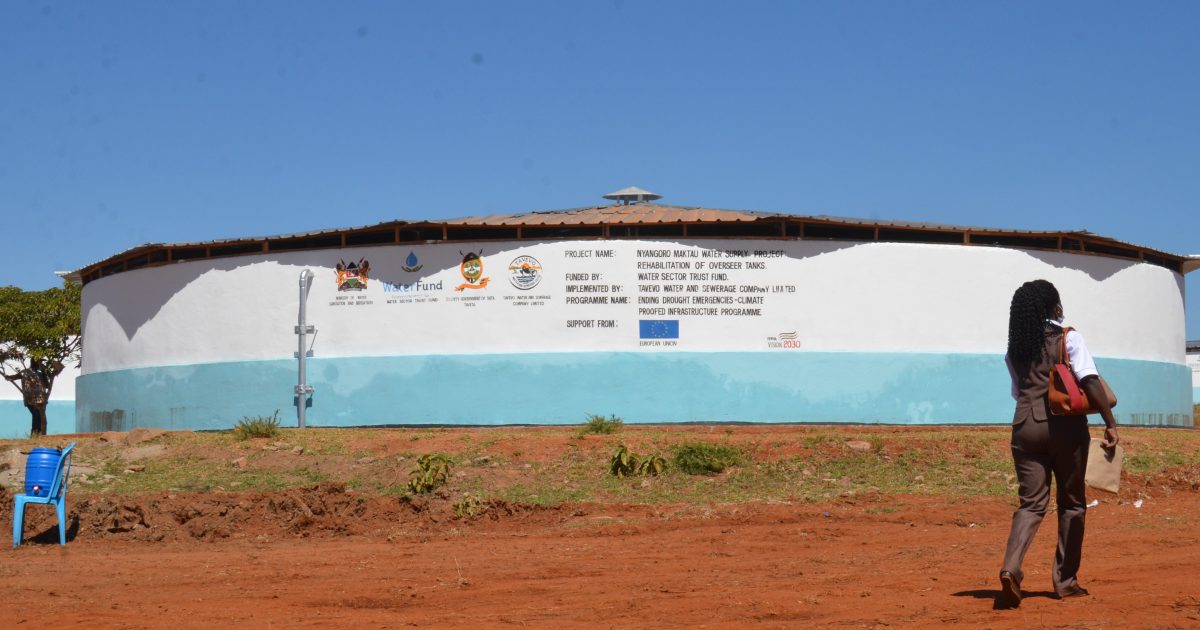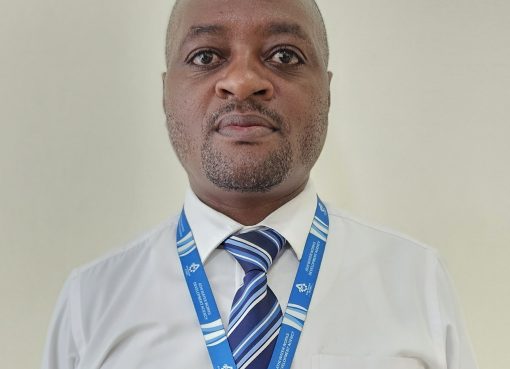At 61, Mama Grace Malemba knows too well the true definition of living at the heart of a water-insecure land, what with the thirst, parched land, empty water containers and the long tedious walks to the borehole at Jipe village in Mwatate Sub-County.
However, with the commissioning of the Sh88 million Nyangoro-Maktau Water Supply Project now promises to offer the much waited reprieve to thousands of long-suffering residents of 14 villages in Godoma and Maktau sub locations.
“We have been waiting for this project anxiously because we were fatigued by trekking for long distances in search of water. This project will now give us rest. We are grateful that the government has finally remembered us,” noted Malemba.
The Nyangoro-Maktau water project is as old as history. First created by the British Army in 1914, the project was intended to provide water for soldiers during World War 1.
Later on in 1945, the project was taken over by Kenya Railway Corporation (KRC) to supply water to the steam engines. The project also served residents of the adjacent villages and their livestock.
A particularly severe drought in 1975 created an unprecedented water crisis that forced thousands of residents to abandon their homes and migrate to the highlands where water was available.
The project would later be sold to Plan International for expansion in a bid to enhance its water supply capacity. The NGO drilled an additional solar-powered borehole in 2004 to mitigate against the risk of low-water challenge during the drought season.
In 2013, there was a proposal to the National Government to assist residents resolve the water challenges, while in 2018, the Ministry of Water through the Water Sector Trust Fund (WSTF) signed a contract with the European Union, under the Ending Drought Emergencies Climate Proofed Infrastructure programme.
Taita-Taveta County was one of the eight counties that would benefit from funding to rehabilitate a community-run water project to mitigate against the adverse effects of drought. Four years later, the project was completed and ready to benefit 17,000 residents in the two sub-locations.
Mr Ismail Shaiye, the Chief Executive Officer (CEO), of Water Sector Trust Fund says commissioning of the project is a boost for the government’s efforts to mitigate the adverse effects of climate change.
Shaiye notes with satisfaction that tackling frequent droughts and long sunny spells that had become a risk to farmers needed solid interventions and long-term solutions.
“This project is meant to serve this community for years to come. The water has now come closer to their homes and we have increased the capacity of supply,” he added.
The European Union through the Water Sector Trust Fund pumped Sh77 million towards rehabilitation of the project with the county allocating Sh11.5 million. The project will be managed by Taita-Taveta Water and Sewerage Company (TAVEVO) through a local committee.
Some of the area residents interviewed by KNA remained hopeful that with the current rehabilitation, the project will serve them even through the driest of months.
Mr Edwin Mwamvule, a youth at Overseer village in Maktau, predicted that the villages will see rapid transformation in terms of farming and other businesses.
“If the water supply remains steady throughout the year, it will give us consistency in our businesses. You will not find people moving to urban centers because there will be enough to do in the villages,” he said.
However, doubts linger. Having been subjected to periods of water scarcity in the past, some residents propose a more reliable approach.
Delvin Mshai, a farmer at Kati village, proposes for a direct line from Njoro Springs in Taveta which are fed from underground streams from Kilimanjaro.
She also says the community can also be served by a feeder line tapped from the main Mzima pipeline supplying water to Mombasa County.
“Nyangoro water project is prone to effects of drought as the water level in the borehole goes down. This affects the overall supply. The permanent solution is to get water from Njoro springs or have a line from the Mzima pipeline,” said Mshai.
By Wagema Mwangi




